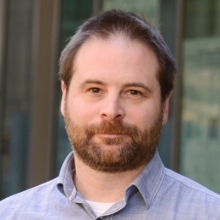CBE Seminar: Engineering Non-model Microbial Hosts for Next-generation Bioprocessing

Director of the Center for Industrial Biotechnology
UC Riverside
Abstract: Industrial biotechnology generates over $324 billion in U.S. revenues, representing more than 2% of the U.S. GDP. Industrial biochemical (e.g., ethanol biofuel, food additives, biopolymers and others) represent more than $125 billion of these revenues and are the fastest growing subsector with annual growth exceeding 10%. A key component of maintaining growth and expanding this industry is creating microbial hosts that enable low-cost bioprocessing. For example, thermophilic growth can save costs by enhancing the in situ breakdown of lignocellulosic biomass, a potentially low-cost source of fermentable sugars. Growth at elevated temperatures and low pH also makes non-aseptic fermentation possible, as other yeasts and common bacterial contaminants do not tolerate these growth conditions. This seminar describes our efforts in engineering nonconventional yeasts with native phenotypes that are best suited to address this need.
Our synthetic biology approach is to identify desirable phenotypes, for instance thermotolerance, in microorganisms and develop genome engineering tools to enhance these traits. The widespread adoption of CRISPR-Cas9 for genome editing has accelerated this strategy by making less genetically tractable organisms more accessible. With this in mind, we designed synthetic RNA polymerase III promoters for guide RNA expression that enables efficient genome editing in non-conventional yeasts. New tools, including genomewide disruption libraries, standardized genome integration sites and CRISPR-activation/interference have allowed us to rapidly engineer and study the yeasts Kluyveromyces marxianus and Yarrowia lipolytica. We targeted thermotolerant K. marxianus because it is one of the fastest growing eukaryotes and has a natural capacity to uptake and convert a wide range of carbon sources. The oleaginous yeast Y. lipolytica is a valuable host for the synthesis of lipid-based compounds because it can effectively convert low cost carbon sources into triacylglycerides and other lipids. Here, we describe the development of genome engineering tools for nonconventional yeasts and their application in understanding high-flux ester biosynthesis in K. marxianus and oleochemical production in Y. lipolytica.
Bio: Ian Wheeldon is an associate professor and director of the Center for Industrial Biotechnology at UC Riverside. He received his doctorate in chemical engineering from Columbia University in 2009 and completed two years of postdoctoral training at Harvard Medical School and the Wyss Institute for Biologically Inspired Engineering at Harvard University. Wheeldon received a master’s of applied science from the Royal Military College of Canada (2003), and a bachelor’s of applied science (1999) from Queen’s University, Canada. His research is focused on synthetic biology for chemical synthesis.
Host: Han Li
Share
Upcoming Events
-
MAE 298 SEMINAR: Technology Developments for FIR Bolometric Detector Focal Plane Assemblies
-
CBE 298 Seminar: The Wisdom of the Crowd: Watching Bacterial Collectives (Re)shape Themselves
-
CEE Seminar: BIM and the Digital Twin
-
MSE Special Seminar: Revolutionizing Battery Technology - Engineering Quantum Materials for Enhanced Safety and Performance in Solid Electrolytes
-
MSE Special Seminar: Designing Sustainable Soft Matter from the Molecule Up
